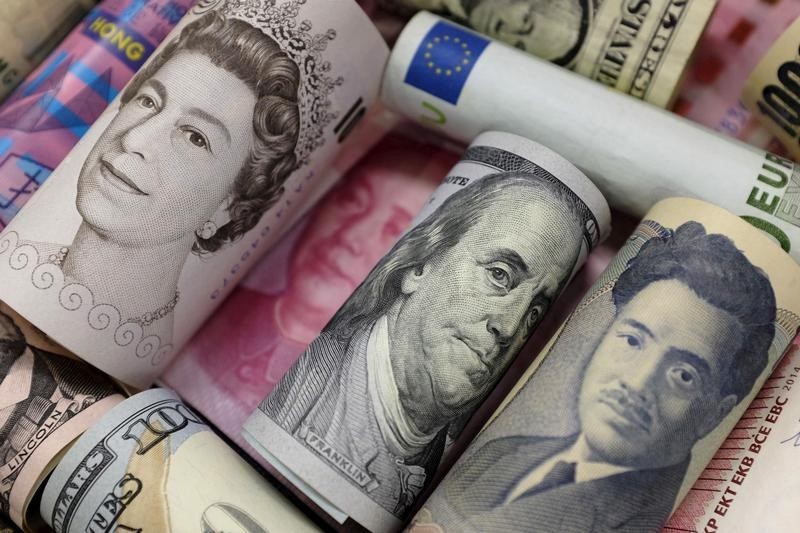By Patrick Graham
LONDON (Reuters) - The Australian and New Zealand dollars gained strongly on a handful of upbeat Asian economic surveys on Tuesday as their U.S. counterpart struggled in the face of concern around next week's presidential election.
A relatively upbeat statement from the Australian central bank quashed any expectations of a near-term cut in interest rates and reduced the prospects of one next year, fuelling an almost 1 percent rise for the Aussie.
The kiwi gained almost half a percent
"There were a few economists expecting a cut (from the RBA) ... so the fact they didn’t provided a bit of relief for the currency," said Dominic Bunning, a currency strategist with HSBC in London.
"But also there was a general question mark over whether they might be a bit more dovish in the statement, because inflation obviously has been low... The fact that they are flexible on the inflation target, just provided a bit of a relief rally."
The gains for the kiwi pointed to a broader trend driven by a rise in global bond yields that stems both from hopes of some improvement in the world's economic prospects and worries over political risk.
Neil Mellor, a strategist with Bank of New York Mellon (NYSE:BK) in London, identified the rise in the Aussie as part of a broader trend to jump on the currency of any central bank that hints at a move away from the ultra-loose policy of the past decade.
"The Reserve Bank (of Australia) is looking at fairly weak consumer prices but asset and house prices that are going through the roof," Mellor said.
"The feeling is that now the economy is doing ok, they may be able to ease back. And anytime a central bank talks about taking their foot off the throttle they get a rise in the currency."
Elsewhere, a Bank of Japan meeting that again pushed back the horizon on getting inflation back to target was not enough to halt the yen's recent falls. It dipped 0.3 percent to 105.12 yen per dollar <JPY=>, less than half a yen off three-month lows hit last week, before steadying around 104.85 yen.
The dollar continued to edge lower going into the final days of a fractious U.S. presidential campaign.
The potential of an FBI investigation into Hillary Clinton's use of a private email server to turn the campaign in favor of businessman Donald Trump has been a negative so far this week for the U.S. currency, although it has also added to support for Treasury yields, in turn a dollar positive.
The euro gained around 0.4 percent to trade above $1.10 for the first time in around two weeks <EUR=>, driving a similar loss for the dollar index to 98.041 (DXY).

Another perceived safe haven from any broader nerves around a Trump presidency, the Swiss franc, gained 0.6 percent to 0.9813 francs per dollar, a three-week high.
(editing by John Stonestreet)